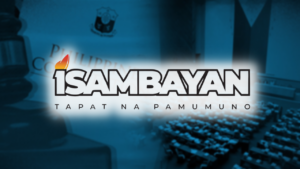
(REUTERS/File Photo)
MANILA, Philippines — A bill seeking to allow netizens to participate in amending and enacting new laws has been filed in the Senate.
Senator Jinggoy Estrada on Wednesday said under his Senate Bill No. 2344, otherwise known as the Crowdsourcing in Legislative Policymaking Act, social media users may participate in the legislative process — beginning with first until third reading by means of crowdsourcing.
“The proposed measure would enable individuals or groups to engage in crowdsourcing, which is defined as the practice of engaging individuals or a group towards a common goal, often at innovation, problem-solving, or efficiency in the delivery of services,” said Estrada in a statement on Wednesday.
According to Estrada, the process may be made possible through social media or online portals of the Senate and the Presidential Legislative Liaison Office (PLLO).
“The public can post or submit their inputs or comments to the committee deliberating on a bill,” he said.
Netizens will be given 15 working days to submit their comments after the first reading of a bill. These inputs will then be discussed during committee deliberations.
“Once the bill is reported on the floor during the second reading of the measure, the public is given three working days to submit their comments, and in the third reading, another three working days are allotted to the public for their inputs,” Estrada explained.
With this, the senator said PLLO will be mandated to create an online platform where social media users can lodge their campaign, petition to review, amend, repeal a law, or create a bill.
“The result of which may be transmitted to any member of both houses of Congress for appropriate action. The PLLO shall also provide an online crowdsourcing feedback report to inform the proponents of the actions taken,” said Estrada.
Estrada believes that this move will improve the country’s legislative processes.
“It will also provide channels that will help lawmakers prioritize the issues and problems that need to be addressed, solicit ways on how to solve them, and obtain feedback on the implemented solutions and policies,” he pointed out.


